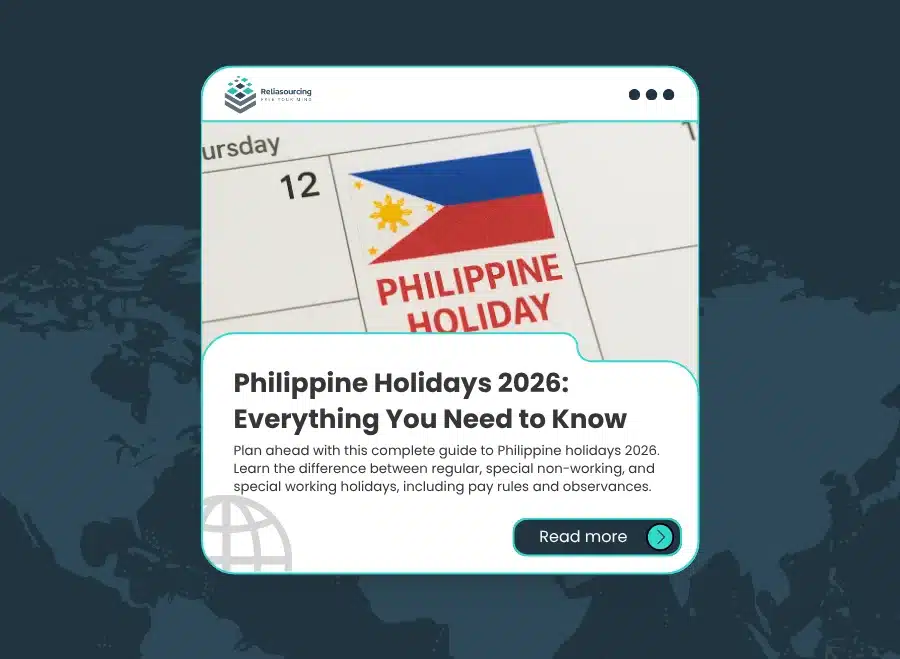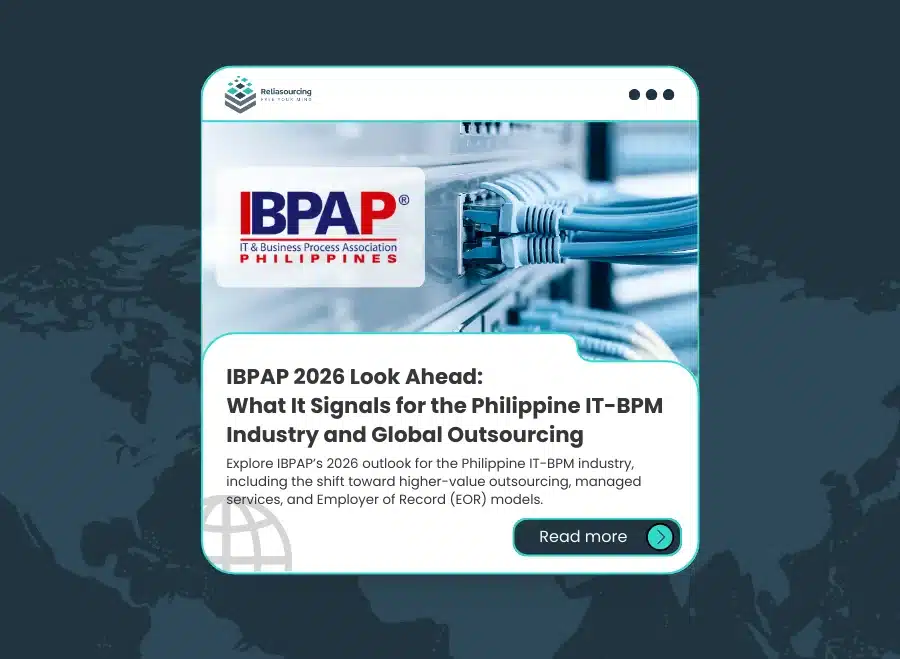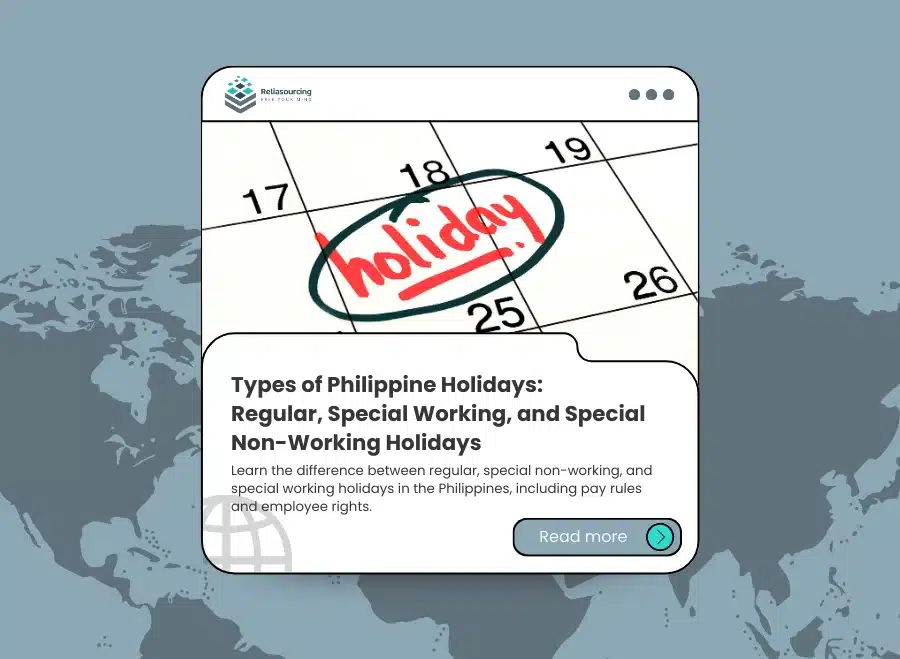The Office of the President has released the official list of Philippine holidays for 2026, giving employees and employers a clear view of the year’s critical observances affecting work schedules, compensation, and operational continuity. Here’s a breakdown of what you need to know.
Types of Philippine Holidays
Holidays in the Philippines fall under three main categories, each with unique rules for pay and observance:
- Regular Holidays. Non-working days where employees are entitled to 100% pay even if they don’t report to work. Those who do work receive 200% of their daily wage.
- Special Non-Working Holidays. The “no work, no pay” rule usually applies, unless the employer says otherwise. If employees are required to work, they earn 130% of their daily rate, or 150% if it falls on a rest day.
- Special Working Holidays. Treated as ordinary working days. Employees receive their regular daily wage, with no additional pay mandated. Employers, however, may choose to grant incentives.
Regular Holidays for 2026
Some of the most widely observed holidays fall under this category. Employees who work on these dates receive double pay.
- New Year’s Day – January 1
- Maundy Thursday & Good Friday – April 2–3
- Araw ng Kagitingan (Day of Valor) – April 9
- Labor Day – May 1
- Independence Day – June 12
- National Heroes Day – August 31
- Bonifacio Day – November 30
- Christmas Day – December 25
- Rizal Day – December 30
Authorities will declare Islamic celebrations such as Eid al-Fitr and Eid al-Adha regular holidays, subject to the official announcement of exact dates based on the Islamic lunar calendar.
Special Non-Working Holidays for 2026
These days carry the “no work, no pay” principle unless the employer has a policy to grant wages.
- Chinese New Year – February 17
- Black Saturday – April 4
- Ninoy Aquino Day – August 21
- All Saints’ Day – November 1
- All Souls’ Day – November 2
- Feast of the Immaculate Conception of the Blessed Virgin Mary – December 8
- Christmas Eve – December 24
- New Year’s Eve – December 31
Special Working Holidays for 2026
The government may declare certain observances as special working holidays, treating them like regular workdays. For example, in 2025 and 2026, the government categorizes the EDSA People Power Anniversary as a special working holiday. Employees should watch for similar announcements in 2026.
Holidays & Pay Rules: A Quick Guide
| Holiday Type | Worked | Did Not Work |
| Regular Holiday | 200% of daily wage | 100% of daily wage |
| Special Non-Working Holiday | 130% of daily wage | No work, no pay* |
| Special Working Holiday | 100% of daily wage | No work, no pay |
*Some employers voluntarily grant pay on special non-working holidays.
A Comprehensive Breakdown on 2026 PH Holidays
| Date | Holiday | Type | Compensation | |
| January 1 | New Year’s Day | Regular Holiday | 100% if no work; 200% if worked | |
| February 17 | Chinese New Year | Special Non-Working Holiday | No work, no pay; 130% if worked; 150% if rest day worked | |
| February 25 | EDSA People Power Anniversary | Special Working Holiday | No work, no pay; 100% if worked | |
| April 2 | Maundy Thursday | Regular Holiday | 100% if no work; 200% if worked | |
| April 3 | Good Friday | Regular Holiday | 100% if no work; 200% if worked | |
| April 4 | Black Saturday | Special Non-Working Holiday | No work, no pay; 130% if worked; 150% if rest day worked | |
| April 9 | Araw ng Kagitingan (Day of Valor) | Regular Holiday | 100% if no work; 200% if worked | |
| May 1 | Labor Day | Regular Holiday | 100% if no work; 200% if worked | |
| June 12 | Independence Day | Regular Holiday | 100% if no work; 200% if worked | |
| August 21 | Ninoy Aquino Day | Special Non-Working Holiday | No work, no pay; 130% if worked; 150% if rest day worked | |
| August 31 | National Heroes Day | Regular Holiday | 100% if no work; 200% if worked | |
| November 1 | All Saints’ Day | Special Non-Working Holiday | No work, no pay; 130% if worked; 150% if rest day worked | |
| November 2 | All Souls’ Day | Special Non-Working Holiday | No work, no pay; 130% if worked; 150% if rest day worked | |
| November 30 | Bonifacio Day | Regular Holiday | 100% if no work; 200% if worked | |
| December 8 | Feast of the Immaculate Conception | Special Non-Working Holiday | No work, no pay; 130% if worked; 150% if rest day worked | |
| December 24 | Christmas Eve | Special Non-Working Holiday | No work, no pay; 130% if worked; 150% if rest day worked | |
| December 25 | Christmas Day | Regular Holiday | 100% if no work; 200% if worked | |
| December 30 | Rizal Day | Regular Holiday | 100% if no work; 200% if worked | |
| December 31 | New Year’s Eve | Special Non-Working Holiday | No work, no pay; 130% if worked; 150% if rest day worked | |
| TBA | Eid al-Fitr | Regular Holiday | 100% if no work; 200% if worked | |
| TBA | Eid al-Adha | Regular Holiday | 100% if no work; 200% if worked | |
Why Knowing Holiday Classifications Matters
Employees need to understand holiday pay to ensure their compensation is accurately calculated. For employers, adhering to DOLE (Department of Labor and Employment) guidelines helps prevent disputes and fosters trust with staff. In industries such as outsourcing and customer service, where 24/7 operations are standard, communicating schedules early is essential.
Frequently Asked Questions About Philippine Holidays 2026
What is the difference between a regular holiday and a special non-working holiday?
The difference between a regular holiday and a special non-working holiday is that a regular holiday entitles employees to 100% of their daily wage even if they don’t work, and 200% if they do, while a special non-working holiday follows the “no work, no pay” rule unless the company policy says otherwise. If you work on a special non-working holiday, you’re entitled to 130% of your daily wage, or 150% if it falls on a rest day.
What does it mean if a holiday is declared a special working holiday?
If a holiday is declared as a special working holiday, it means that it’s like an ordinary workday. Employees only receive their standard daily wage, with no additional compensation required. However, some employers may offer incentives at their discretion.
Do I still get holiday pay if I don’t work on a regular holiday?
Yes. You still get holiday pay even if you don’t work on a regular holiday, since employees are entitled to 100% of their daily wage even if they don’t report to work. Just note that it does not come with deductions nor any additional compensation.
How is holiday pay computed if the holiday falls on my rest day?
If a holiday falls on your rest day, the holiday pay is computed depending on what kind of holiday it is. If a regular holiday falls on your rest day and you work, you’re entitled to 260% of your daily wage. For a special non-working holiday that falls on a rest day, the pay is 150% of your daily wage if you work.
What happens if my company follows foreign holidays but I work in the Philippines?
If your company follows foreign holidays but you work in the Philippines, Philippine labor law still applies, meaning you’re still entitled to the correct holiday pay for Philippine holidays if you’re required to work even if your client operations follow overseas holidays (for example, US federal holidays).
Final Thoughts
The Philippine holidays in 2026 reflect a mix of cultural traditions, religious observances, and national history. If you’re planning travel, family gatherings, or work schedules, knowing how these dates are classified is key to making the most of the year ahead.
For employees, it’s important to ensure that they receive fair compensation. For businesses, it’s about balancing compliance with operational needs. The 2026 holiday calendar sets your roadmap for rest, reflection, and productivity.
About Reliasourcing
Reliasourcing is a premier outsourcing solutions provider in the Philippines. We deliver tailored services that help businesses across industries achieve operational efficiency and scalability. With a focus on customer experience and innovation, Reliasourcing continues to be a trusted partner in unlocking potential through outsourcing.
Follow us on Facebook, Instagram, LinkedIn, YouTube, and X for more information on the latest trends and insights in outsourcing, the industry, and the Philippines.
Connect with us, or become part of our growing team today!









